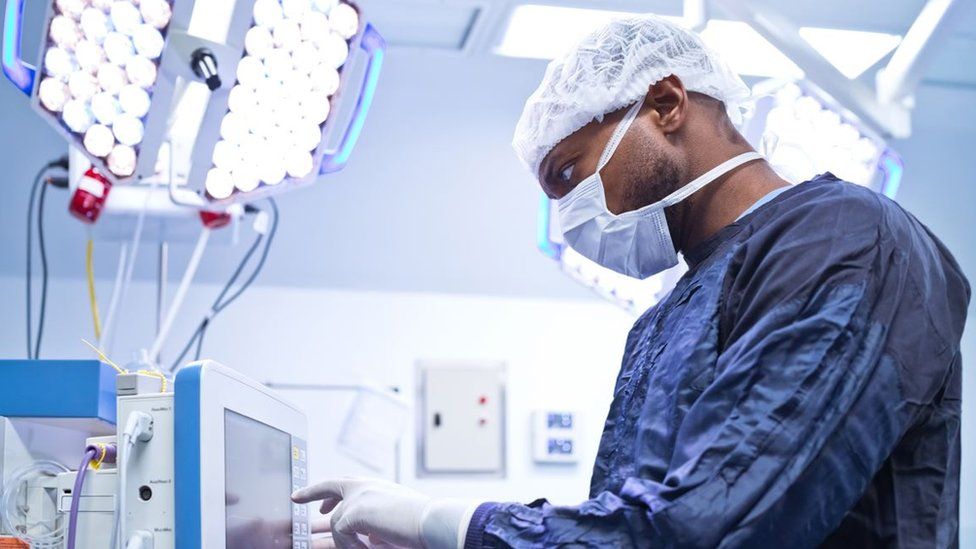ARTICLE AD BOX
 Image source, Getty Images
Image source, Getty Images
Reducing waiting times in the NHS is one of the five pledges announced at the start of the year by the prime minister
By Michael Sheils McNamee and Nick Triggle
BBC News
The NHS is set to undergo the "largest expansion in training and workforce" in its history, Rishi Sunak has said.
Speaking to the BBC, the prime minister said the plans would reduce "reliance on foreign-trained healthcare professionals".
It comes at a time of record-high waiting lists in the NHS and junior doctors set to stage a five-day strike next month.
The full plans are expected to be published next week.
Pressed about the length of time it would take to see the results of the changes, Mr Sunak accepted it could take "five, ten, fifteen years for these things to come through", but that did not mean it was not the right thing to do.
Almost everyone is agreed there needs to be a significant increase in the numbers of doctors and nurses going into training.
The current system for training UK doctors and nurses simply cannot keep up with the needs of the NHS. At the moment, around half of all new doctors and nurses joining the workforce in the UK have been trained abroad.
While the workforce has grown over the past decade, the squeeze in funding that the NHS has received has left the service with fewer doctors and nurses per head than many of our European counterparts.
The pressures on the NHS mean services are increasingly finding it difficult to give students the time and support they need - so the challenge facing the government in terms of increasing training places is ensuring there are enough clinical placements for students to do during their training.
The new package of measures could see apprentice-doctor roles brought in to fill NHS staffing gaps in England.
The proposal would see people who finish the five-year apprenticeships becoming junior doctors - offering an alternative to the traditional medical degree route.
The plan also aims to expand the nurse apprenticeship scheme that already exists.
On the BBC's Sunday with Laura Kuenssberg show, Mr Sunak said the plans would "mean people can have confidence that the doctors and nurses and GPs that we all need will be there".
He said the "long-term workforce plan" would mean the NHS can recruit doctors, nurses and GPs "not just today but for years into the future to provide the care that we all need".
Reducing waiting times in the NHS is one of the five pledges announced at the start of the year by the prime minister.
In the first half of this year, the number of patients waiting for consultant-led elective care in England grew to 7.4 million, up from 7.2 million in January.
In March 2020, at the start of the pandemic, there were about 4.4 million people in England on an NHS waiting list.
Mr Sunak was pushed by the BBC on failing to secure a pay deal which would avert the strike action by junior doctors.
The action by the BMA union is the longest yet, and is being held between 13 and 18 July in protest over pay. It has rejected at 5% pay rise, which it describes as not "credible".
He said had he had reached agreements with "over half a dozen NHS unions" and was required "to make difficult decisions as prime minister".
"When it comes to public sector pay, I'm going to do what I think is affordable, what I think is responsible," he said.

 1 year ago
28
1 year ago
28








 English (US) ·
English (US) ·